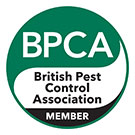GOT PEST PROBLEMS, GET IN TOUCH FOR A FREE QUOTE
- Telephone0141 432 0433
- Emailinfo@allpestservices.co.uk
- REQUEST A CALLBACK
Foxes [Vulpes vulpes] have become a significant pest in urban areas in recent years feeding on discarded take-away food and foraging in bins.
Generally they are nocturnal animals but can increasingly be seen in daytime depending upon the avilability of food. Their presence can be quite alarming especially where a full is present and their digging can cause significant damage in gardens in particular.
Discarded food remains around the den can be very unsightly and can attract other pests. The animals are nocturnal and constantly scent mark their territories.
They are very smelly and can cause significant problems where they gain entry to sub-floor areas because of damaged or missing air vents and bricks.
Although semi solitary sometimes they can be seen in family groups comprising a single male (dog) and several females (vixens).
Mating takes place in December-February with cubs born March-May. Average litter size is 5.
Foxes can often live for approx 9 years. They are omnivorous feeding on small animals, bird eggs, worms and insects as well as fruit.
Do you have a problem with foxes? We can help…
All Pest Services is a member of the British Pest Control Association (BPCA) and the National Pest Technician’s Association (NPTA), as well as being an approved member of the Confederation of European Pest Control Associations (CEPA). We are also Safe Contractor Approved.
Our staff have been specifically trained to undertake all types of pest control work and have many years’ experience in the profession. All our staff have achieved the Royal Society for Public Health Level 2 Award in Pest Management which is a requirement for members of the BPCA. All our staff are Wildlife Aware trained.
No, however control must be justified and must be carried out in a humane manner.
All Pest Services is a member of the British Pest Control Association (BPCA) and the National Pest Technician’s Association (NPTA), as well as being an approved member of the Confederation of European Pest Control Associations (CEPA). We are also Safe Contractor Approved.
Our staff have been specifically trained to undertake all types of pest control work and have many years’ experience in the profession. All our staff have achieved the Royal Society for Public Health Level 2 Award in Pest Management which is a requirement for members of the BPCA. All our staff are Wildlife Aware trained.
No, however control must be justified and must be carried out in a humane manner.
In most cases urban foxes do not cause us any specific problems although some people may find their presence distressing, especially if they have young children or pets. They will often raid bins and spread waste as a result. Many foxes do carry fleas and their dens have a strong and distinctive foul odour. Foxes continually scent mark their territory – if they gain access to your solum this can prove very unpleasant! They may also need controlling for reasons such as to prevent damage to cage animals and livestock or due to damaging lawns and golf courses.
Under normal circumstances foxes are very wary animals and are unlikely to approach people. In urban situations where they have become accustomed to living in close proximity to man they can appear less shy. Nevertheless it is very unusual for a fox to approach a human. Incidents of injury to people are almost always due to incapacity of the person involved.
Fox control is often a very sensitive issue and needs to be handled with care. Urban fox control is a particularly tricky issue – many of the most effective methods of control (shooting and snaring) are simply not practicable in an urban setting. In many cases the best approach is environmental management rather than control (thinning out vegetation or erecting fox – proof fencing or electric fencing. Fox-proofing of shed bases and basements can also be carried out). Where control has to be carried out live trapping is often the only viable option although it can be time-consuming and the results may be relatively short-lived.
GOT PEST PROBLEMS, GET IN TOUCH FOR A FREE QUOTE










